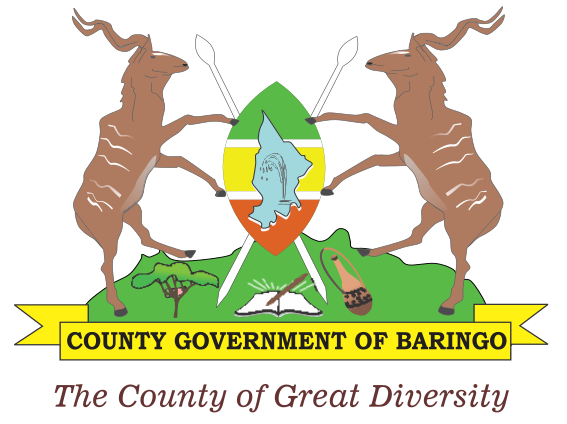Food Systems For Sustainable Socioeconomic Growth
Healthy, sustainable and inclusive food systems are critical to achieve the development goals of our County. Agricultural development is one of the most powerful tools to end extreme poverty, boost shared prosperity, and feed a population of 700,000. It supports over 90% of the County population and therefore, growth in the sector is key in raising incomes among the poor compared to other sectors. It is also crucial to our County economic growth: in 2020, it accounted for 60% of Gross County Product (Kenya Economic Outlook paper, 2020).
Sustainable and efficient agricultural practices are therefore vital not only in guaranteeing food security, but also in addressing the challenges of a growing global population and ensuring a resilient and secure future.
A sure strategy to enable our farmers to take advantage of the enormous prevalent competitive advantages to make money from within Baringo and beyond, is to transform agriculture, livestock and blue economy sub sectors into commercially driven and innovative life changing ventures.
To achieve this, all our efforts as a Department will revolve around increasing productivity, investing in value chain development, promoting mechanization, improving farmers’ capacity through intensified trainings and extension services; and developing reliable markets, as these are the key drivers for the sector.
This will be done with the aim of not only improving food security, but also producing enough to enable us venture into, and sustain value addition especially in the dairy, meat, coffee and apiculture sub sectors.
A summary of our interventions in the Agriculture, Livestock and Blue Economy Sub-Sectors will be the following: -
-
Livestock breeds upgrading through Artificial Insemination, Pedigree Bulls, Gala Bucks, Dorper Rams;
-
Construction of new sale yards and rehabilitation of existing ones– enable farmers to cut out middlemen and fetch better prices for their livestock
-
Livestock Disease control – Vaccinations; construction and rehabilitation of cattle dips
-
Promotion of pasture production and storage
-
Promotion of Apiculture
-
Promotion of fisheries development
-
Crops and horticultural development - Distribution of subsidized seedlings and fertilizer
All these hard work will not bear the desired results, if we do not see them through to value addition. We will therefore fast track the completion and operationalization of 2 slaughter houses, one each in Barwessa and Loruk as well as the Maoi Abattoir which shall be fully equipped to international standards. Ensuring we end transportation of live animals out of our County will be one avenue of job creation and a sure one for the expansion of our revenue base.
We will prioritize the Completion our Milk Processing Plant in Eldama Ravine, to not only promote value addition in the dairy sector but to also create employment and increase income for farmers among other spinoff benefits. I challenge farmers to embrace technology in dairy farming to optimize production of milk to guarantee maximum use of the milk plant, so that they too, reap to the maximum from this rewarding venture.
In the coffee value chain, we shall sustain the empowerment of farmers and initiate extension services to further enhance coffee production. This will ensure that the Baringo Cha Coffee Mill operates in its full capacity of 1.2 tonnes per hour. Meanwhile, we shall be exploring avenues for the expansion of our South Korean market through our contacts in the Tiger Economy.
The Department promotes both capture fisheries and fish farming (Aquaculture). Capture fisheries thrives in the fresh water lakes and dams. To enhance fish value addition, the Department is constructing a fish landing beach fully equipped with cold chain facilities to reduce post harvest losses among other interventions, including the capacity building of fish farmers.
